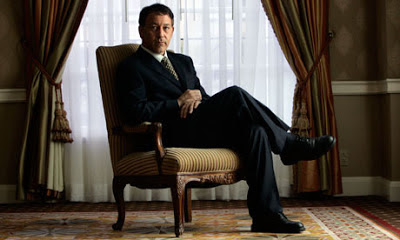There is little commentary on this at the moment, but I see Stephen Hough has picked up on it:
S.J. Those two letters indicating that their holder is a member of the Society of Jesus might, in earlier times, have been the cause for fear or dismay at this time. But since the 2nd Vatican Council the Jesuits have been at the forefront of reform in the Catholic Church. They have forged new theological paths; they have explored new ways of mission as cooperation and friendship rather than coercion; they have embraced a clear option for the poor. In fact, they have recovered something of the charism of their founder Ignatius Loyola whilst leaving behind the baggage of many Jesuit generations in between.Time wrote about the Jesuits in 2008 (when they elected a new Superior General):
Jorge Mario Bergoglio has chosen a brand new name, Francis I. Francis Xavier certainly would have been in his mind, but also the Poverello of Assisi whose plan to rebuild the Church consisted of giving everything away. I have a feeling it's a name which that other Jesuit, Cardinal Carlo Maria Martini, might have chosen had he lived, had he been elected. It's a complete break with the Papal past at the same time as being a link of charity with all that has made Christianity of value over the centuries. Pope means 'father'. Let's hope that Francis I will be one in the fullest, warmest sense of the word, to Christians and those of every and no faith.
Though more recently established, more traditionalist movements and religious orders such as Opus Dei and the Legionaries of Christ have gotten more attention of late, the Jesuits are still far and away the largest clerical order in the Church. They too, however, have suffered from declining ordinations, down to fewer than 20,000 members from a peak of 36,000 in the 1960s.....I also bet some nutty conspiracy sites will go into overdrive about this. Just give them a day or two to get their deranged thoughts in order.
Indeed, the order was founded with a special mission to directly serve the Pontiff, and has been dubbed the "Pope's cavalry," engendering suspicion in the past of conspiracies and secret powers. Even Popes, including John Paul II, have criticized them for their apparent autonomy. "Yes, we are in the vanguard of the Church," says Jose de Vera, head spokesman for the order. "It is not our job to just repeat the catechism, but to do research. Sometimes looking for real truth, you can step over the line." Just last year, the Vatican's doctrinal office issued a "Notification" to Spanish Jesuit scholar Jon Sobrino, a proponent of Marxist-inspired liberation theology, for what they called "erroneous ... and even dangerous" writings.
Most Jesuits steer clear of offending the Vatican hierarchy, focusing on frontline missionary work amongst the poor and oppressed. Noted in particular for their vast network of schools and universities, the Jesuits are widely considered the day-to-day educational and intellectual motor for Roman Catholicism. Pecklers, who teaches liturgy at the Gregorian University in Rome, has lately been working on an education project in the hinterlands of Mongolia. "Whereas a Benedictine is centered around his monastery, the Jesuit's life is the road. The way we've achieved our credibility is getting our hands dirty, getting involved in issues of countries." Still, the order is facing many of the same challenges that face the entire Church, including declining numbers of clergy, especially in Western Europe and North America, and the tricky balancing act between faith and politics.
Since the Second Vatican Council, many Jesuits have favored progressive reform in the Church, seeking to adapt Catholic traditions to modern life. Kolvenbach's request to Benedict to step down as he approached the age of 80, Vatican sources say, could have implications for the "white" papacy as well if a Pope were to consider retiring because of old age or ill health.









